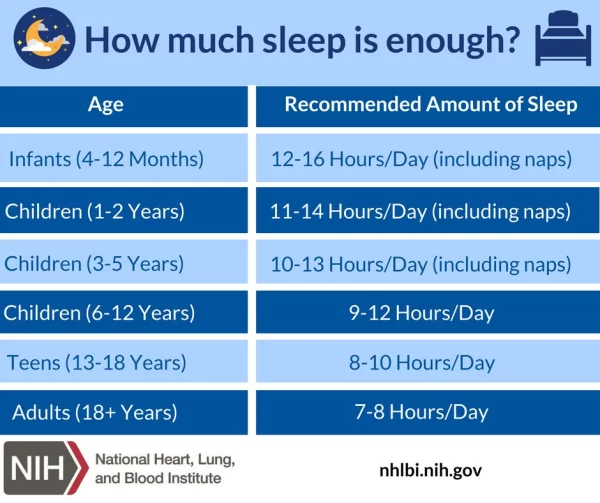How much sleep is enough for children? This is a question many parents ponder, especially since sleep plays a crucial role in a child’s overall development. According to the American Academy of Sleep Medicine (AASM, 2023), children aged 6 to 12 need between 9 to 12 hours of sleep per day to maintain good health and support both physical and mental development. However, not all children achieve this amount, leading to behavioral and health issues.
Experts emphasize that sleep is not merely a period of rest but a time when the body releases growth hormones, aiding recovery and development. Jodi Mindell, Ph.D., from the Sleep Center at Children’s Hospital of Philadelphia, states: “Sleep deprivation can significantly impact a child’s ability to learn, regulate emotions, and even their long-term physical health.”
“Sleep impacts every aspect of a child’s development, from focus and learning to emotional regulation and overall health.” – American Academy of Sleep Medicine (AASM, 2023)

Depending on developmental stages, children’s sleep needs vary. The American Academy of Pediatrics (AAP, 2023) provides specific recommendations: newborns require 14 to 17 hours of sleep daily, preschoolers need 10 to 13 hours, and older children require 9 to 12 hours. Particularly, for children aged 3 to 5, as they reduce or completely stop napping, ensuring a sufficiently long night’s sleep becomes essential.
However, many parents find it challenging to recognize when their child is sleep-deprived. Symptoms like difficulty waking up in the morning, fatigue throughout the day, or irritability are often mistaken for academic pressure. The National Sleep Foundation (NSF, 2020) highlights:
“Sleep-deprived children may exhibit hyperactive or unfocused behaviors, rather than the sluggishness typically seen in adults.”

Several factors can affect a child’s sleep needs, including genetics, health conditions, or periods of rapid growth. For example, during illness, children often sleep longer to aid recovery. On the other hand, excessive sleep can also indicate health issues such as anemia or sleep apnea.
To improve sleep quality for children, experts recommend establishing a consistent sleep routine with fixed bedtimes and wake-up times. Additionally, creating a quiet, comfortable sleeping environment and avoiding electronic devices before bedtime are crucial steps to help children achieve quality sleep.


HPX24h > Parenting Tips > How Much Sleep Do Children Really Need?
Top Reads from This Category
Parenting Tips
Why Do Preschoolers Have the Habit of Nose Picking?
Parenting Tips
How to Talk to Your Child About Smoking Issues
Parenting Tips
How to Talk to Children About Alcohol (Ages 6-8)
Parenting Tips
Causes and Solutions for Aggressive and Strong-Willed Behavior in Children
Parenting Tips
How to Talk to Your Child About Divorce: Helpful Tips for Parents
Parenting Tips
Why You Can’t Force Your Child to Live the Way You Do?
Parenting Tips
Teaching Children Respect: Simple Tips for Parents with Kids Aged 6 to 8
Discover New Topics
Fitness
Postpartum Fitness: Secrets to Maintaining an Active Routine for a Quick Recovery
Healthy Eating
How Much Protein Do You Need Daily: What’s Sufficient for Your Body
Health
What Does a Right-Side Headache Indicate About Your Health?
Healthy Eating
How to Follow the 5:2 Diet: The Key to Effective Weight Management
Health
Why You Shouldn’t Skip a Protein-Rich Breakfast
Science
Successful Penis Transplant Surgery: A New Breakthrough in Medical Science
Fitness
What is the Ideal Heart Rate for Running?
Science
The Mystery of the Brain Network that Regulates Human Attention Has Been Unveiled
Science
Artificial Hearts and a Future Without the Need for Transplants
Health
How Losing Just 5% of Your Weight Can Reduce the Risk of Diabetes
Science
AI Can Make Life Easier, But Is It Harming Your Ability to Think Critically?
Science
New Hope from Cyborg Spinal Implant Technology for Paralyzed Patients
Fitness
Yoga: The Key to Physical and Mental Balance